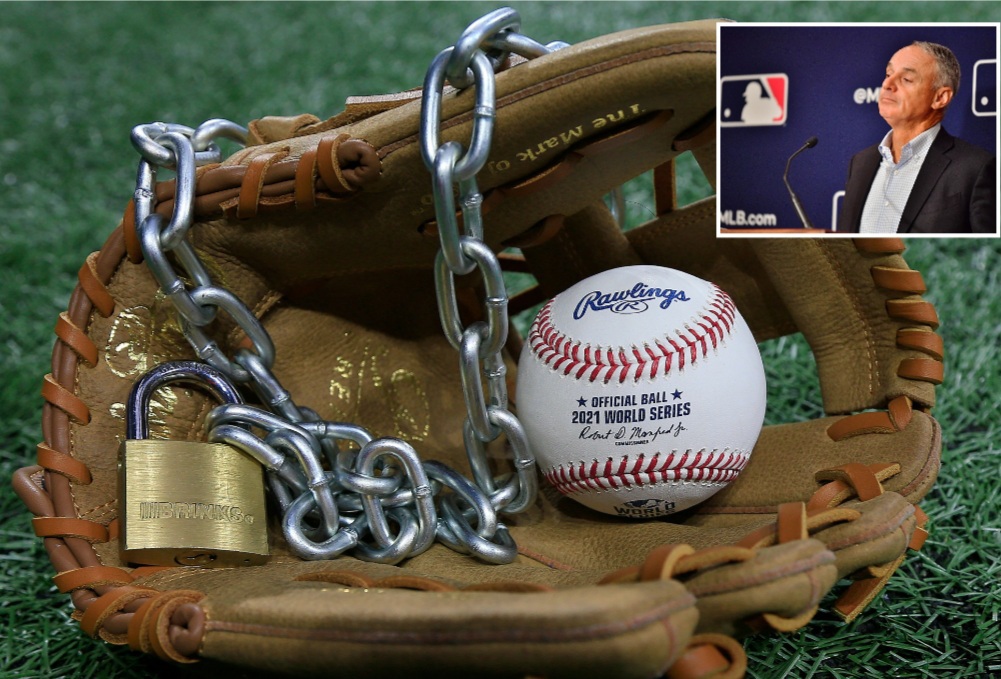It’s February 2022. The weather is slowly changing from the low temperatures of winter to the pleasant sensations of spring. When it starts feeling like spring, as sports fans, we get excited because it means something big — baseball season is right around the corner. Yet, there seems to be something missing, something that we usually count on as being an indicator that America’s favorite pastime is starting soon. Pitchers and catchers were initially supposed to report to training camp. On February 15th, however, not one ball or glove found its way onto an MLB field.
On Dec. 2nd, 2021, Rob Manfred, commissioner of the MLB, along with all the team owners, decided to put the state of Major League Baseball in a lockout. This means no MLB activity whatsoever can happen until this matter has been settled.
What is this matter? The Collective Bargaining Agreement (CBA), an agreement between the Player’s Association and the team owners on everything regarding the MLB (such as rules of employment, the financial structure, etc…), had expired — as it does every five years — and a new one needed to be signed. This year, the players did not want to sign a new one until a few requests were met.
The Player’s Association addressed some demands to the owners before the deadline to sign a new one, which was December 2nd. The top priorities for the players were raising the minimum salary for players, especially new players entering the league, as well as removing compensatory draft picks. The latter is when a team receives a pick when they fail to trade a player during the season and he eventually signs with another team. There are other smaller matters that the players requested as well, such as a possible universal designated hitter for the pitcher, and putting an end to teams being allowed to ‘tank.’ Tanking is a tactic where teams purposely lose games to have a worse record to accumulate a higher draft pick in the draft.
The owners had demands themselves, such as starting the minimum total payroll for each team at $100 million. They also proposed to the Players Association to lower the luxury tax from $210 million to $180 million.
Funny enough, the lockout didn’t have to happen. Manfred and the owners unanimously agreed to a lockout as a bargaining tactic to make the Player’s Association fold early. This has resulted in the longest work stoppage since 1994-1995. That was the last time there was a bargaining dilemma that eventually resulted in the MLB not having a World Series that year. Should this continue and cost the regular season some of its games, it would be the MLB’s second season in three years with less games played than the standard 162 per team.
Both sides have met several times and some meetings have gone better than others, as some have been reported to last only a few minutes according to ESPN’s Jeff Passan. However, Manfred has assured that this will not affect the regular season.“I am an optimist,” Manfred said Thursday. “I believe we will have an agreement in time to play our regular schedule. …We’re doing everything we can to get a deal done for our fans. You’re always one breakthrough away from making an agreement. That’s the art of this process.” There has been movement, as owners agreed to the universal designated hitter for both the American League as well as the National League which never was able to use the rule to have a different batter hit for the pitcher, as well as the elimination of the compensatory draft pick.
As we draw closer to spring, the empty feeling of not having baseball will continue to weigh over us. This lockout has taken much happiness away from the fans, players, owners, and everyone who loves baseball.











